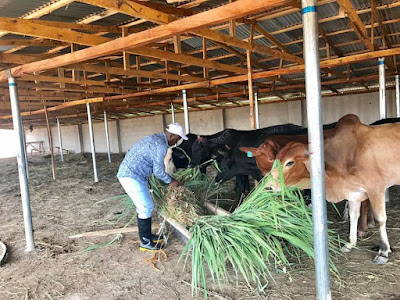Nigeria Railway Launch First Speed Train, will start operation in 30 Days Time
Nigeria has launch its first ever high speed train service that will start operation in March 2016. It is the double-track, standard gauge between Abuja and Kaduna that runs at 120Km and 150 Km an hour.
In March, travelers will be able to journey from Abuja to Kaduna (and vice-versa) in less than an hour.
The project which was just completed by the China Civil Engineering Construction Company (CCECC) cost $849 million.
The Managing Director of the Nigerian Railway Corporation (NRC), Adeseyi Sijuwade while addressing the media in Lagos said “Next month, we’ll be taking delivery of modern coaches to run on the standard gauge line, specifically for the Abuja-Kaduna line, so that that service can commence immediately,”
According to him, the corporation was looking at a February-March timeline to commence delivery of services.
The rail project was supposedly completed in December 2014, but was never delivered. And even if the delivery is 15 months later than expected, it is good news that it finally works considering the fact that it has spanned nearly four administrations.
Spanning from the Obasanjo administration to present, an active and efficient rail system has been marred for a long time by inefficiencies and corruption on a massive scale. As since the contract was awarded in the Obasanjo era, there has not been any positive move to see its fruition.
Trains were originally designed to transport heavy duty goods like the goods ferried from the seaports on giant trailers that block and damage the road causing traffic gridlock. Some rail tracks have been rendered dysfunctional and unusable from the many years of being left idle.
A working rail system is key to our messed up transportation system as roads would be eased off and traffic gridlocks become a thing of the past. The Lagos to Ibadan route was also commissioned in 2010 with this Abuja-Kaduna route, as well as the Lagos to Calabar route.
The government should also consider other routes that are frequently traveled and are heavily congested, like roads out of Lagos to other commercial hubs.
Source: techpoint
In March, travelers will be able to journey from Abuja to Kaduna (and vice-versa) in less than an hour.
The project which was just completed by the China Civil Engineering Construction Company (CCECC) cost $849 million.
The Managing Director of the Nigerian Railway Corporation (NRC), Adeseyi Sijuwade while addressing the media in Lagos said “Next month, we’ll be taking delivery of modern coaches to run on the standard gauge line, specifically for the Abuja-Kaduna line, so that that service can commence immediately,”
According to him, the corporation was looking at a February-March timeline to commence delivery of services.
The rail project was supposedly completed in December 2014, but was never delivered. And even if the delivery is 15 months later than expected, it is good news that it finally works considering the fact that it has spanned nearly four administrations.
Spanning from the Obasanjo administration to present, an active and efficient rail system has been marred for a long time by inefficiencies and corruption on a massive scale. As since the contract was awarded in the Obasanjo era, there has not been any positive move to see its fruition.
Trains were originally designed to transport heavy duty goods like the goods ferried from the seaports on giant trailers that block and damage the road causing traffic gridlock. Some rail tracks have been rendered dysfunctional and unusable from the many years of being left idle.
A working rail system is key to our messed up transportation system as roads would be eased off and traffic gridlocks become a thing of the past. The Lagos to Ibadan route was also commissioned in 2010 with this Abuja-Kaduna route, as well as the Lagos to Calabar route.
The government should also consider other routes that are frequently traveled and are heavily congested, like roads out of Lagos to other commercial hubs.
Source: techpoint




Comments
Post a Comment